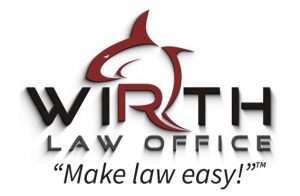 Parole hearings are a part of inmate life. But they are also a chance at freedom. All too often, inmates represent themselves at the hearing and are unprepared to help the Parole Board really understand that they are ready to be released back into society. As a result, parole is often denied and the inmate must usually wait at least another year before their next parole hearing. Here are some things that you may want to think about.
Parole hearings are a part of inmate life. But they are also a chance at freedom. All too often, inmates represent themselves at the hearing and are unprepared to help the Parole Board really understand that they are ready to be released back into society. As a result, parole is often denied and the inmate must usually wait at least another year before their next parole hearing. Here are some things that you may want to think about.
What Is Parole?
Parole is defined as the conditional release of an offender who has served part of their prison term. If the inmate qualifies for parole, the remainder of their sentence can be served outside the prison, maintaining certain ordered conditions and under supervision for the duration of their sentence. In Oklahoma, the process is overseen by the Oklahoma Pardon and Parole Board.
Qualifying For Parole Hearings
In general, an inmate must have served 1/3 of their sentence if their crime was committed after July 1, 1998. For some violent crimes, an inmate must serve 85% of their sentence before becoming eligible for parole. For crimes committed before July 1, 1998, the rules are more complex. Okla. Stat. tit. 57 § 332.7
What Happens at the Parole Hearing?
The Board will have prepared for the hearing and so should you.
The Board wants to know if an inmate has fully addressed their criminal actions and is ready to be reassimilated into society. They want to know that if they release an inmate, the inmate will not pose a danger to society and that the inmate will be successful in avoiding further criminal activity.
To that end, the Parole Board will have reviewed an inmate’s complete file in preparation for the hearing.
An inmate can prepare by working with their Okmulgee attorney to best address the Board’s concerns. The Board will want to know that an inmate has a place to live, can find employment, and has completed or will complete their GED. Okla. Stat. tit. 57 §§ 332.7, 332.8
An innate can expect that the Board may ask about any of these factors. The Board may also want to know how the inmate feels about the crime that was committed and about how they imagine their victim or victims feel.
The victim and district attorney may also appear and give testimony regarding an inmate’s proposed release.
The time allotted to an inmate to speak is very short, about two minutes. This is where an attorney’s help can be invaluable. Your Okmulgee parole hearings attorney can address the board in a concise manner, addressing the most pressing issues first. And attorneys are persuasive. It is important that those two minutes be used wisely.
Typical Parole Conditions
The Parole Board sets the conditions for a parolee’s release. There are standard conditions given to every parolee. In addition, the Parole Board may set any other conditions it deems appropriate and necessary.
Here are some typical conditions imposed:
- abstaining from drugs or alcohol;
- obeying all laws;
- no contact with known criminals;
- no possession of firearms; and
- payment of parole fees.
If a parolee violates any condition of parole, that parolee could face additional sanctions such as being sent back to prison.
Having an experienced Okmulgee parole hearings attorney can help you prepare for your hearing and can help the Board understand that you are ready for release.
Low-cost Consultation With An Okmulgee Parole Hearings Attorney
Call 918-756-9600 now for a initial consultation with a qualified Okmulgee attorney at Wirth Law Office – Okmulgee.
Or, enter your legal question or concern in the firm at the top right of this page, and one of our attorneys will email or call you.








